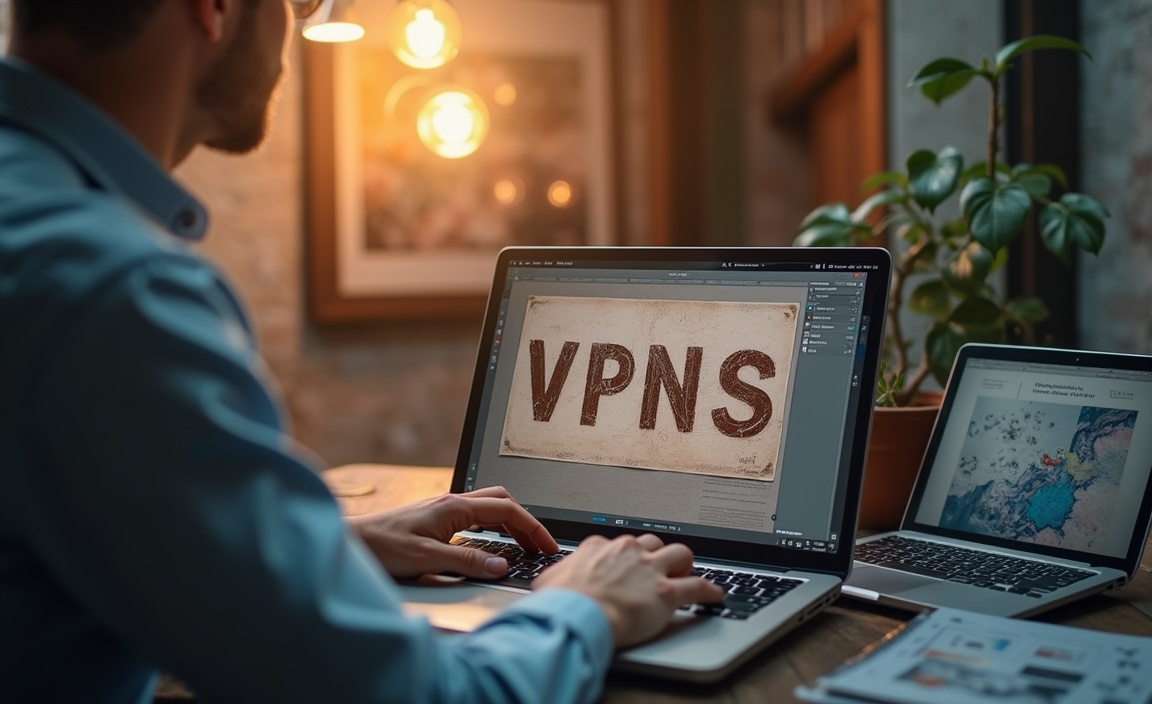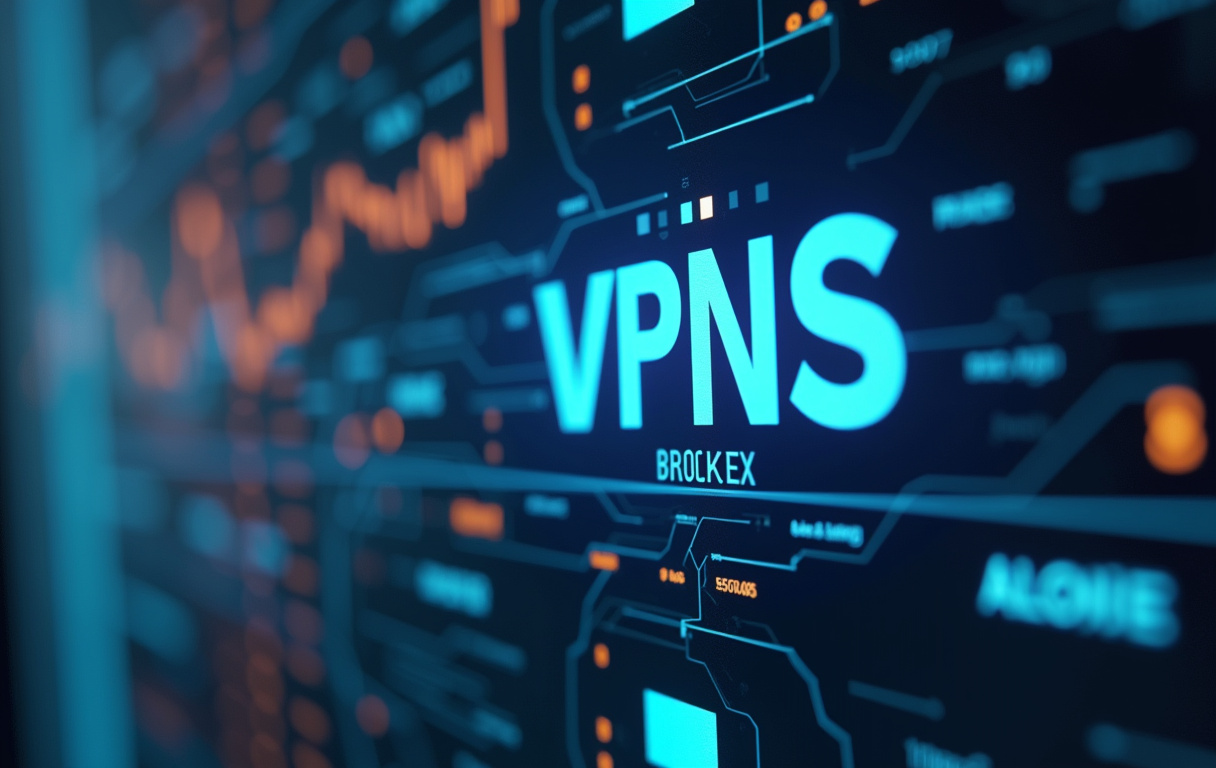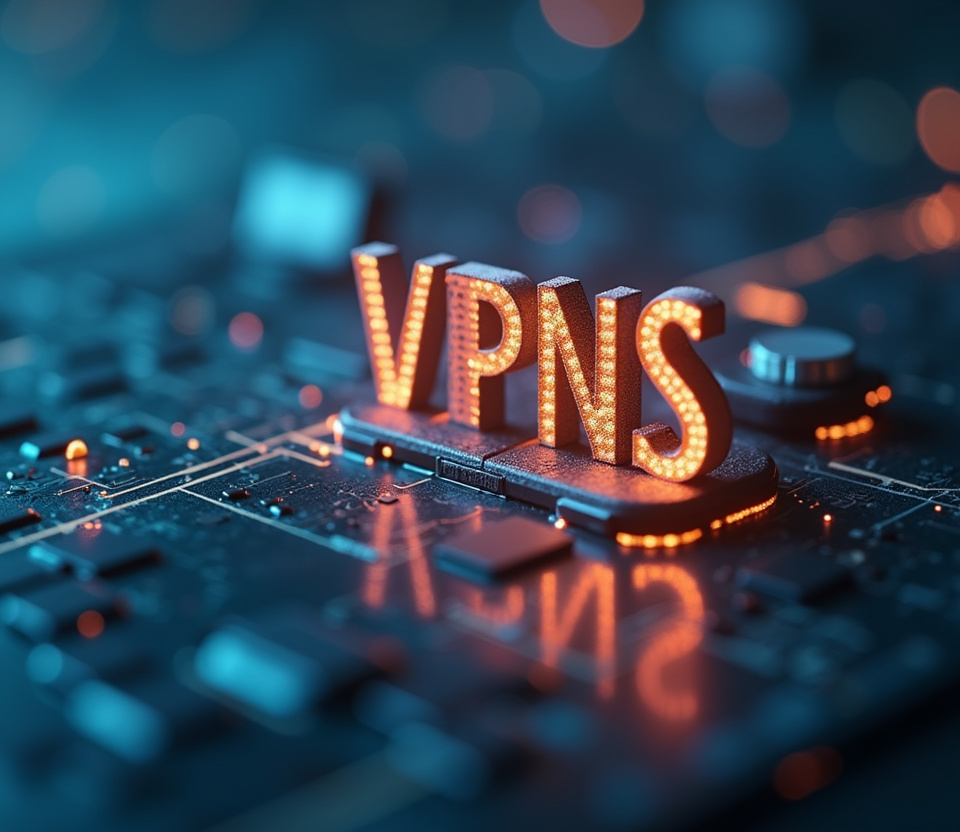VPNs for Home Renovation Services: Securing Client Contracts

Table of Contents
The Rising Need for Cybersecurity in Home Renovation
In an era defined by digital interconnectivity, where data breaches are increasingly common and sophisticated, the protection of sensitive information has become a paramount concern for businesses across all industries. Home renovation services, in particular, navigate a landscape fraught with risks. These businesses routinely handle a treasure trove of client data, including personal contact information, detailed financial records, architectural blueprints, and legally-binding contracts that outline project scope, payment terms, and timelines.
The potential consequences of a successful cyberattack targeting this information can be catastrophic, ranging from crippling financial losses and irreparable reputational damage to complex legal liabilities and a complete erosion of client trust. This article will explore the critical role of Virtual Private Networks (VPNs) in bolstering data security for home renovation services, focusing on how they can effectively secure client contracts, protect sensitive project plans, and ultimately foster stronger, more trusting relationships with clients. Securing client contracts is, without question, a cornerstone of any successful home renovation business.
These documents encapsulate the very foundation of the client-service provider relationship, meticulously outlining the precise scope of the renovation project, the agreed-upon payment schedule, the expected project timeline, and the individual legal obligations of both parties. As such, these contracts represent a highly valuable target for cybercriminals seeking to exploit financial information, disrupt business operations, or even manipulate the terms of the agreement for their own nefarious purposes. A data breach resulting in the exposure of sensitive contract details, or worse, an unauthorized alteration of contract terms, can lead to protracted legal battles, costly disputes, and significant financial repercussions for the renovation service.
Beyond the potential for financial harm, such a breach can also inflict lasting damage on the company's reputation. Clients, understandably, place a high degree of trust in their renovation service, entrusting them with not only their homes but also their personal and financial information. A failure to adequately protect this information can shatter that trust, leading to a loss of existing clients and a diminished ability to attract new ones.
Furthermore, the detailed project plans that accompany these contracts often contain a wealth of proprietary information that is crucial to the success of the renovation service. These plans may include innovative architectural designs, unique problem-solving solutions tailored to specific client needs, and carefully crafted project schedules that provide the company with a competitive advantage in the marketplace. The unauthorized exposure of these plans to competitors can undermine a company's market position, stifle its ability to innovate, and ultimately erode its profitability.
By implementing a robust VPN solution, home renovation services can create a secure, encrypted tunnel for all data transmissions, effectively shielding client contracts, project plans, and other sensitive information from prying eyes. A *renovation VPN* operates by encrypting all internet traffic originating from or destined for the company's network, rendering it unreadable to unauthorized parties who may attempt to intercept it. This encryption process transforms sensitive data into a complex, scrambled code that can only be deciphered with the correct decryption key, ensuring that even if the data is intercepted, it remains unintelligible and useless to the attacker.
This level of security is particularly crucial in today's increasingly mobile and remote work environment, where employees may be accessing company networks from a variety of locations, including their homes, public Wi-Fi hotspots, and even while traveling. Public Wi-Fi networks, in particular, are notoriously vulnerable to cyberattacks, making them a prime target for hackers seeking to intercept sensitive data. In addition to encrypting data, a reliable *renovation VPN* also masks the user's IP address, providing an additional layer of anonymity and making it significantly more difficult for hackers to track online activity or pinpoint the physical location of the user.
This combination of encryption and IP masking creates a formidable defense against a wide range of cyber threats, including eavesdropping, man-in-the-middle attacks, and other sophisticated techniques that can compromise the *confidentiality* of client data and the security of sensitive project plans. Protecting project plans through encryption is an advantage of using a *renovation VPN* .
How VPNs Protect Sensitive Contract Data and Client Communications
Beyond the fundamental protection offered by data encryption and IP masking, a premium VPN service extends its security capabilities through a suite of advanced features designed to provide comprehensive protection for home renovation businesses. These enhanced features constitute a multi-layered defense against a wide array of cyber threats, ensuring the ongoing security and integrity of sensitive data. One such feature is a kill switch, a critical component that automatically severes the internet connection in the event that the VPN connection drops unexpectedly.
This seemingly simple function is crucial because it prevents any unencrypted data from being transmitted over the unprotected internet connection, effectively mitigating the risk of data exposure during a VPN outage. Imagine an employee working on a highly sensitive client contract, with the VPN connection suddenly failing. Without a kill switch, the unencrypted contract data would be transmitted over the regular internet connection, potentially exposing it to eavesdropping or interception.
The kill switch prevents this scenario by immediately cutting off the internet access, ensuring that all data remains protected within the secure confines of the VPN. Another vital security feature offered by advanced VPN services is DNS leak protection. The Domain Name System (DNS) is essentially the internet's phonebook, translating human-readable website names (like example.com) into the numerical IP addresses that computers use to communicate with each other.
Without proper protection, DNS requests can be intercepted and monitored by third parties, revealing browsing activity and potentially exposing sensitive information. DNS leak protection ensures that all DNS queries are routed through the VPN server, masking the user's actual DNS server and preventing third parties, such as internet service providers (ISPs) or malicious actors, from monitoring browsing history or intercepting sensitive DNS requests. This feature essentially plugs a potential security hole that could compromise the anonymity and security provided by the VPN.
Split tunneling is another valuable feature that offers both security and flexibility. This functionality allows users to selectively route some traffic through the VPN tunnel while allowing other traffic to access the internet directly, bypassing the VPN. This can be particularly useful for home renovation services that need to access geographically restricted content or services, while still maintaining a secure connection for sensitive data transmissions.
For example, an employee might use split tunneling to access a local weather website without routing all their traffic through the VPN, while simultaneously using the VPN to securely transmit client contracts or architectural plans. This approach allows for optimal performance and bandwidth allocation, while ensuring that sensitive data remains protected at all times. The ability of a remote user to securely access the company network guarantees *client contract security*, regardless of where the employee is situated.
Furthermore, many premium VPN providers offer integrated threat protection features that provide an additional layer of security against online threats. These features may include malware detection and blocking, which scans downloaded files for known malware signatures and prevents malicious software from infecting the user's device. Phishing prevention mechanisms can identify and block phishing websites, preventing employees from falling victim to scams that could compromise their credentials or expose sensitive data.
Ad blocking capabilities can prevent intrusive and potentially malicious advertisements from loading on websites, reducing the risk of malware infections and improving browsing performance. The seamless integration of a *renovation VPN* into the daily operations of a home renovation service represents a significant step towards enhancing *project plan protection* and ensuring the ongoing security and integrity of all sensitive documents. This proactive approach goes beyond simply encrypting data, establishing a secure and reliable infrastructure for communication, collaboration, and data storage, both internally among employees and externally with clients.
This fosters an environment of trust and confidence, assuring clients that their sensitive information is handled with the utmost care and professionalism. Regular security audits of VPN configurations and a strict adherence to security best practices are essential for maintaining a robust and effective security posture. This includes ensuring that strong, unique passwords are used for all VPN accounts, keeping VPN software and operating systems up-to-date with the latest security patches, and providing comprehensive employee training on how to identify and avoid phishing scams and other social engineering tactics.
A well-trained and security-conscious workforce is the first line of defense against cyber threats, and ongoing training is crucial for keeping employees informed about the latest security risks and best practices.
Implementing VPNs: Best Practices for Home Renovation Businesses
Successfully integrating a VPN solution into a home renovation service's existing workflow requires careful planning, meticulous execution, and a comprehensive understanding of the business's specific security needs. This process is not merely about installing software; it involves a strategic assessment of vulnerabilities, the selection of an appropriate VPN provider, proper configuration, thorough employee training, and ongoing monitoring and maintenance. The first, and perhaps most critical, step is to conduct a thorough assessment of the specific security needs of the business.
This involves carefully considering the types of data that are handled on a regular basis, the number of employees who require access to the VPN, the level of security required to protect sensitive client information and proprietary project plans, and the potential risks associated with remote access and data sharing. This assessment should take into account industry best practices, regulatory requirements (such as data privacy laws), and any specific vulnerabilities that have been identified in the company's existing IT infrastructure. Once the security needs have been clearly defined, the next step is to select a reputable VPN provider that offers a range of features, robust encryption protocols, a proven track record of reliability, and a commitment to user privacy.
It is crucial to choose a provider that utilizes strong encryption algorithms, such as AES-256, and supports secure VPN protocols, such as OpenVPN or WireGuard. Another essential consideration is the provider's logging policy. Ideally, the provider should adhere to a strict "no-logs" policy, meaning that they do not collect or store any user activity data, ensuring that browsing history, connection logs, and other sensitive information remain private.
Transparency is also key. A reputable VPN provider will have a clear and easily accessible privacy policy that explains how user data is handled and protected. The VPN client software must be installed on all devices that will be used to access sensitive data, including desktop computers, laptops, tablets, and smartphones.
The installation process is typically straightforward, but it is important to ensure that the software is downloaded from the official VPN provider's website to avoid the risk of installing malware or other malicious software. After installation, the VPN client must be properly configured to ensure that all internet traffic is routed through the VPN server and that the kill switch and other security features are enabled. This may involve adjusting network settings, configuring firewall rules, and setting up automatic connections to the VPN server.
Equally important is the need to provide thorough training to all employees on how to use the VPN and understand the importance of protecting sensitive data. This training should cover a range of topics, including password security best practices (such as using strong, unique passwords and avoiding password reuse), how to identify and avoid phishing scams and other social engineering tactics, safe browsing habits (such as avoiding suspicious websites and being cautious about clicking on links in emails or social media), and the proper use of the VPN software. Employees should be educated about the potential risks of data breaches and the consequences of violating security protocols.
A clear and comprehensive policy should be established regarding the use of the VPN and the handling of client data. This policy should outline the responsibilities of each employee, the procedures for reporting security incidents, and the consequences of violating security protocols. The policy should be communicated to all employees and regularly reviewed and updated to reflect changes in technology or security threats.
VPN performance should be closely monitored to ensure that it is not negatively impacting productivity. VPNs can sometimes introduce latency or reduce internet speeds, which can be frustrating for employees. If performance issues are detected, adjustments may need to be made to the VPN configuration, such as switching to a different VPN server or adjusting the encryption settings.
It may also be necessary to upgrade the company's network infrastructure to provide adequate bandwidth for VPN traffic. Proactively identifying and addressing security vulnerabilities through regular security audits and penetration testing is crucial for maintaining a robust and effective security posture. Security audits involve reviewing the VPN configuration, network settings, and security policies to identify potential weaknesses.
Penetration testing involves simulating real-world cyberattacks to test the effectiveness of the VPN and other security controls. The results of these audits and tests should be used to identify and address any vulnerabilities that are discovered. The *VPN for services* should be audited according to the standars.
Future-Proofing Your Business: The Evolving Role of VPNs in Renovation Security
The benefits of integrating a well-configured and properly maintained VPN solution into a home renovation service extend far beyond the immediate realm of data security. While the primary purpose is undoubtedly to safeguard sensitive information and protect against cyber threats, the implementation of a VPN can also yield a range of positive outcomes that contribute to improved business operations, enhanced client relationships, and a stronger competitive advantage in the marketplace. By demonstrating a clear commitment to protecting client information and prioritizing data security, home renovation services can cultivate stronger relationships with their clients, foster a greater sense of trust, and ultimately gain a significant competitive edge in an increasingly crowded and competitive market.
In today's digital age, clients are more aware than ever before of the risks associated with data breaches and the importance of protecting their personal information. They are more likely to choose a renovation service that demonstrates a proactive approach to security and takes concrete steps to safeguard their data. The implementation of a *renovation VPN* serves as a tangible demonstration of this commitment, assuring clients that their information is in safe hands.
This can be a significant differentiator when clients are evaluating multiple renovation services and making their final decision. A strong security posture can also be a valuable asset when it comes to attracting and retaining top talent within the home renovation industry. Skilled and experienced professionals are more likely to seek employment with a company that takes data security seriously and provides them with the tools and training they need to protect sensitive information.
A secure work environment not only fosters a culture of security awareness and accountability but also reduces the risk of human error, which is a leading cause of data breaches. Moreover, a well-maintained VPN can contribute to improved operational efficiency and productivity within a home renovation service. By providing secure and reliable remote access to company resources, a VPN enables employees to work from anywhere, at any time, without compromising data security.
This can be particularly beneficial for project managers, designers, and other personnel who need to access project plans, client contracts, or other sensitive information while working on-site or traveling. Remote access capabilities can also enable employees to collaborate more effectively with each other and with clients, regardless of their physical location. This can lead to improved communication, faster decision-making, and a more streamlined workflow.
Furthermore, a comprehensive security approach, including the use of a VPN, can help home renovation services comply with increasingly stringent data privacy regulations, such as the General Data Protection Regulation (GDPR) in Europe and the California Consumer Privacy Act (CCPA) in the United States. Compliance with these regulations is not only a legal requirement but also a matter of ethical responsibility. Demonstrating compliance with data privacy regulations can enhance a company's reputation and build trust with clients.
The financial implications of a data breach can be devastating for a home renovation service, ranging from direct financial losses due to legal settlements and fines to indirect costs associated with reputational damage, lost business, and increased security expenses. By investing in a robust VPN solution and implementing a comprehensive security strategy, home renovation services can significantly reduce their risk of experiencing a data breach and mitigate the potential financial consequences. A proactive approach to security is a sound investment that can pay dividends in the long run.
In conclusion, the integration of a Virtual Private Network (VPN) into the operational framework of a home renovation service is no longer a mere luxury but a crucial imperative for ensuring the security, integrity, and confidentiality of sensitive client data and proprietary project plans. As the digital landscape becomes increasingly complex and cyber threats continue to evolve in sophistication, the implementation of a robust VPN solution serves as a fundamental layer of protection against a wide range of potential risks. By encrypting internet traffic, masking IP addresses, and providing a suite of advanced security features, a VPN can effectively shield sensitive information from unauthorized access, prevent data breaches, and safeguard the reputation and financial well-being of the business.
The benefits of a *renovation VPN* extend far beyond simple data protection. By demonstrating a clear and unwavering commitment to data security, home renovation services can cultivate stronger, more trusting relationships with their clients, fostering a sense of confidence and assurance that their personal information is being handled with the utmost care and professionalism. This heightened level of trust can translate into increased client loyalty, positive word-of-mouth referrals, and a significant competitive advantage in the marketplace.
Furthermore, a secure work environment, facilitated by the implementation of a VPN, can attract and retain top talent within the industry, creating a culture of security awareness and accountability among employees. This proactive approach not only reduces the risk of human error, a leading cause of data breaches but also empowers employees to become active participants in protecting sensitive information. Successfully integrating a VPN into a home renovation service's workflow requires careful planning, meticulous execution, and ongoing monitoring and maintenance.
This includes conducting a thorough assessment of the business's specific security needs, selecting a reputable VPN provider with a proven track record of reliability and a commitment to user privacy, properly configuring the VPN client software on all devices that will be used to access sensitive data, and providing comprehensive training to all employees on how to use the VPN and understand the importance of protecting sensitive information. The proactive adoption of a VPN and adherence to robust security practices not only safeguards sensitive data but also contributes to improved operational efficiency, enhanced collaboration, and compliance with increasingly stringent data privacy regulations. This holistic approach to security is not merely a cost of doing business but rather a strategic investment that can pay dividends in the long run, mitigating the potential financial and reputational consequences of a data breach and fostering a culture of trust, transparency, and accountability.
Ultimately, the integration of a *VPN for services* represents a commitment to excellence, demonstrating a dedication to protecting client information and upholding the highest standards of professionalism in the home renovation industry. Embracing a proactive and comprehensive approach to data security is not only essential for survival in today's digital landscape but also a strategic imperative for long-term success. Therefore, home renovation services should prioritize the implementation of a robust VPN solution and integrate it seamlessly into their daily operations to ensure the ongoing security, integrity, and *confidentiality* of sensitive client data and proprietary project.
Implementing a *renovation VPN* for *client contract security* and *project plan protection* has become essential to build client trust.
Stay Updated
Get the latest VPN news, tips, and exclusive deals to your inbox.




